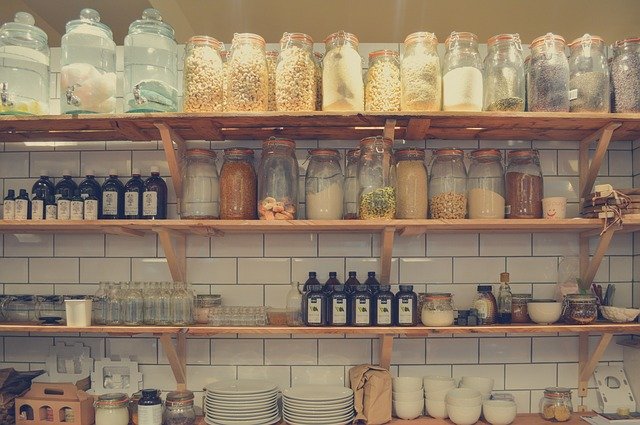
Those of us who live in industrial or post-industrial countries tend to take food for granted. It’s relatively cheap and plentiful, to the point where many of us have bulging waistlines. But it wasn’t always like this, and it won’t necessarily be like this going forward. Our grocery stores are packed full, but only because of a robust interconnected supply chain. Just-in-time inventory management was a new concept a generation ago, now it’s standard operating procedure. Grocery stores routinely have very high rates of turnover for their inventory. Having a 2-day supply of food on hand is typical for them. I saw a study from the UK a while back that found that the typical British household had three days of food on hand.
What would happen if that supply chain system broke down for one reason or another? All the parts are interconnected and interdependent, a breakdown of any one part of it could ripple through the system. Sure, it might be localized and short-lived. Ye Olde Big Storm. Having some extra food on hand just in case for such a scenario isn’t the least bit crazy.
But it’s not hard to make a case for having a lot more food on hand than the “typical” three day supply that many people have. Your emergency might have nothing at all to do with the world at large, or even your neighborhood. You could lose your job tomorrow and, if you had a bunch of food saved up, you’d have one less thing to worry about. A major natural disaster (earthquake? hurricane? whatevertheheckisinyourneckofthewoods?) could result in extended disruptions of the food chain.
And, who knows, there might be something on the scale of an existential threat. What if the electrical grid went down, and stayed down? Hackers, terrorists, rogue nation-states? Okay, maybe the zombie apocalypse won’t strike tomorrow, but we live in a freaky crazy world. John Bolton as National Security Advisor? That maniac will get us into another disastrous war. The lunatics have taken over the asylum.
You can start small. Slowly build up a deep pantry. When you go food shopping, just buy a little bit extra each time. And make it be things that your family already eats. Rotate your stocks. Build your deep pantry with an emphasis on things that don’t need cooking (in many historical crisis situations, availability of fuel has been an issue). It doesn’t have to be anything fancy. Jars of peanut butter, canned goods, honey, whatever you use on a regular basis.
Once you’ve built up some reserves in your deep pantry, add some cheap basics that do need cooking but can stretch the items in your pantry and have long shelf lives if stored properly. Rice, beans, and pasta. You don’t have to go off the deep end like Doomsday Preppers wackos (that show presented a very distorted view of preparedness, a real disservice) and spend tens of thousands on freeze-dried food. For long-term food storage, your enemies are heat, moisture, oxygen, light, and critters. Five-gallon Home Depot buckets with gamma seals and a few oxygen absorbers will do just fine.
But don’t rely on food storage alone. Food production is something almost anyone can do. If you’re not already a gardener, become one. It’s a skill with a long learning curve, so hop to it. There’s nothing quite like stepping out your back door and harvesting greens and vegetables for your dinner’s salad.

Pixabay image
